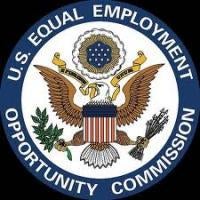Thai Farm Workers Trafficked to Hawaii and Washington, Indian Welders to Mississippi and Texas, Subjected to Intolerable Conditions, Commission Alleges
WASHINGTON - A labor broker in California, farms in Hawaii and Washington, and a marine services company in Mississippi and Texas subjected foreign workers to severe abuse and discrimination after they were trafficked into this country, the U.S. Equal Employment Opportunity Commission alleged in three lawsuits filed today. These lawsuits follow a Commission meeting, held Jan. 19, 2011, on the issue of human trafficking and forced labor.
“The mistreatment of workers alleged in these cases is intolerable in our legal system,” said Jacqueline A. Berrien, Chair of the EEOC. “These lawsuits highlight the critically important role that the EEOC must play in protecting the rights of victims of labor trafficking.”
The EEOC’s Los Angeles district office filed suit in Hawaii (Civ. No. CV-11-00257-DAE-RLP) against Global Horizons, the labor broker, and six farms there; and a separate suit filed in Washington (Civ No. 2:11-cv-03045-EFS), against Global Horizons and two farms in that state, alleging that Global brought more than 200 Thai men into the country to work as farm workers on the promises of high-paying wages and temporary visas. Once in the country, the workers had their passports confiscated and were threatened with deportation if they complained. They were employed on the eight farms named in the two lawsuits, where they received low wages - far less than promised, forced into vermin-ridden housing, denied the opportunity to leave the premises, and subjected to harassment, including physical assaults, by their overseers. Further, the workers had to pay large sums to Global as recruitment fees, putting them and their families back in Thailand severely in debt, making it impossible for them to leave, even had they been permitted to.
In a separate suit, the Birmingham, Ala., office of the EEOC filed suit in Mississippi charging that Signal International, a marine services company with facilities along the Gulf Coast, subjected at least 500 Indian welders and pipe-fitters at its Mississippi and Texas locations to segregated facilities and discriminatory terms and conditions of employment. These workers, brought into the country by a separate entity not part of the lawsuit, were forced to live in Signal’s substandard, unsanitary accommodations, for which they were charged an inordinate amount, given unwholesome food, demeaned by being referred to by numbers instead of their names, and at least two of them were retaliated against for complaining about the substandard conditions and discrimination.
“The EEOC is committed to the protection of all workers. The lawsuits we have filed today seek to remedy systemic discriminatory practices against a particularly vulnerable class of workers,” said P. David Lopez, General Counsel of the EEOC. “When necessary, the EEOC will file such cases to protect victims of discrimination and ensure all workplaces comply with the law."
All three lawsuits were brought under Title VII of the Civil Rights Act of 1964, which prohibits discrimination on the basis of race and national origin as well as retaliation. The EEOC filed suit in each instance after attempting to resolve the matter through settlement. In all, the Commission will seek back pay, compensatory and punitive damages, as well as injunctive relief to prevent future discrimination.



 />i
/>i
